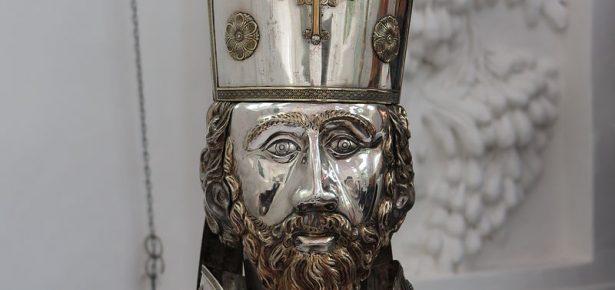
Each evening the world awaits with anxiety the new numbers John Hopkins University provides for the spread of COVID-19 around the globe. This fascination with mortality rates during an epidemic is nothing new. The Historia Augusta, a biography of Roman emperors composed in late antiquity, reports that during the peak of a pandemic in 262 CE about 5000 people a day were dying in Rome and the cities of Greece. In 263 CE the bishop of Alexandria in Egypt wrote in his Easter letter to his community: “Now, indeed, everything is tears and everyone is mourning, and wailings resound daily through the city because of the multitude of the dead and dying.” Lamenting the magnitude of the pandemic, he quoted the classical Greek historian Thucydides, who lived through the Athenian plague of the fifth century BCE: “the thing which turned out to be more serious than we all expected”, a sentiment echoed by today’s political leaders who at first all vastly underestimated the impact the new Coronavirus would have on their population’s health and the global economy.
Without knowing how the disease could spread from person to person, people sensed that social distancing from the sick was a way to escape falling ill as well. The images of dead bodies piling up in the streets of Guayaquil, ground zero for the spread of COVID-19 in Ecuador, vividly demonstrate the reality behind the descriptions of pandemics in these ancient texts which have often been dismissed as vast exaggerations. But we should not imagine that the dying had been abandoned and left to rot in the streets; rather, just as today, the situation arose due to the inability of undertakers to cope with the high levels of excess mortality. After days of waiting to be buried or cremated, dead relatives had to be moved outside the home as the smell became unbearable.
Those, however, who were willing to sacrifice their own health to help the sick were widely prized. People today applaud the front-line healthcare workers from their balconies at a certain time each evening; during the pandemic of the third century CE it was the so-called Christians, members of a new sect who suffered periodic persecution by their neighbors and even by the state, who were praised for not sparing themselves but instead hurrying to tend the sick, often suffering the same fate a few days later.
The years of the third century CE during which this pestilence of unknown origin spread over the entire world, returning in fresh waves for more than 15 years, have been generally acknowledged as a watershed for Western civilization and as a major turning point in the history of the Roman Empire, marking the transition between the High Empire and late antiquity. Already debilitated by the lack of legitimacy of its leaders, migrations into its territory, climate change, drought, economic depression, and religious change, the arrival of the pandemic was the trigger for a deep crisis, leading to economic collapse, enemy invasions, the fragmentation of power within its territory, trends toward autonomy, and the desire for regional separatism. The decades of the pandemic are the darkest, that is least documented, of the entire Roman imperial period. Only many years after the last wave of the pandemic rolled through the Mediterranean did the Roman Empire prove its resilience and ability to adapt and change in the face of these challenges by reuniting the splinter states under its rule. It survived as a single political realm for another 200 years – however with its administration, military, society, and religious landscape changed forever. Pandemics as triggers for a global crisis and driving forces of political, economic, and societal change are thus well known from history.
Latest Comments
Have your say!